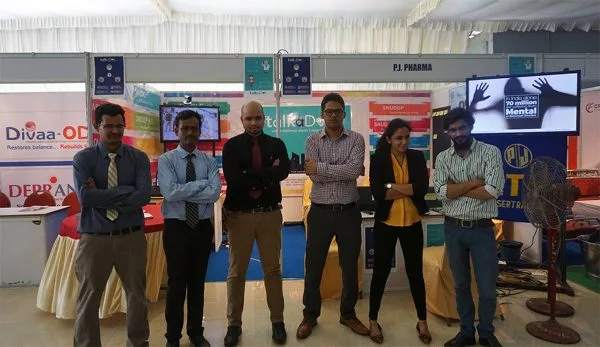Chaitanya Josyula, University of Memphis alumni and Co-founder of talkaDoc strongly encourages the No Sir No Madam culture for India’s development. He pursued a degree in Engineering, Electronics, and Management from the University of Madras. Later, he completed a Master’s of Science with a specialization in Management Information System from the University of Memphis, USA.
After living for 11 years in the USA, Chaitanya and his wife decided to return to India to fulfill their start-up journey. In 2006, along with his wife, Chaitanya founded talkaDoc. The company is developing an AI platform to measure the health outcome of mental health patients. talkaDoc aims to increase the effectiveness, affordability, and accessibility for mental care.
Chaitanya accepts that mental illness awareness has increased in India. However, he indicates that there is more room for improvement at the grass-root level.
In India, Chaitanya observes that the caste system and other social prejudices have already segregated people into different groups. Furthermore, Sir/Madam taboo adds more burden to these existing social problems in the country. Therefore, he affirms that by implementing the No Sir No Madam culture, we can bring consistency in society and increase the dignity of labor.
Chaitanya practices the first-name culture at his workspace. At talkaDoc, he made sure every employee addressed each other by name, including him. During the interview sessions, he insisted the candidates use his name to refer to him. He considers that in an informal setting, people are comfortable enough to have open conversations.
According to Chaitanya, an individual insists upon being addressed as Sir or Madam when they believe that the other person is inferior to them in some aspect. He has witnessed that some doctors in rural centers wanted the patients to regard them as Sir or Madam.
He states — The position that the government officials hold makes them believe that they are superior. He indicates that such discrimination is more prevalent in rural areas for a lack of proper awareness & education.
Chaitanya asserts, “Every person should be respected no matter where they come from.” Salutations are fed into the underprivileged minds that result in lowering their self-esteem. They start to think that they are not respected enough due to their social and economic standing.
He thinks that the Sir/Madam taboo creates — a biased environment. To avoid such discrimination, he has built a non-conservative and balanced relationship with his domestic help. While living in Chennai, he recalls addressing his domestic help by name, and they regarded him as “Anna.”
Chaitanya strongly believes that there is no privilege attached to Sir and Madam chanting. Authority figures should wash away their superiority complexes. He confers that the truly erudite and elite never judges people and is comfortable with the idea of being addressed by name.
Chaitanya finds the No Sir No Madam initiative as a necessity for the country. He suggests that the cause should reach out to social entrepreneurs and venture firms. He also thinks that metropolises will be more receptive to this idea than the rural areas.
Chaitanya concludes that the official authoritative figures must be more accommodative and respectful of the citizens. This may result in building a balanced society for all. He also advises that individuals should be purely judged based on their skill and hard work rather than their social standing in the country.







Add comment